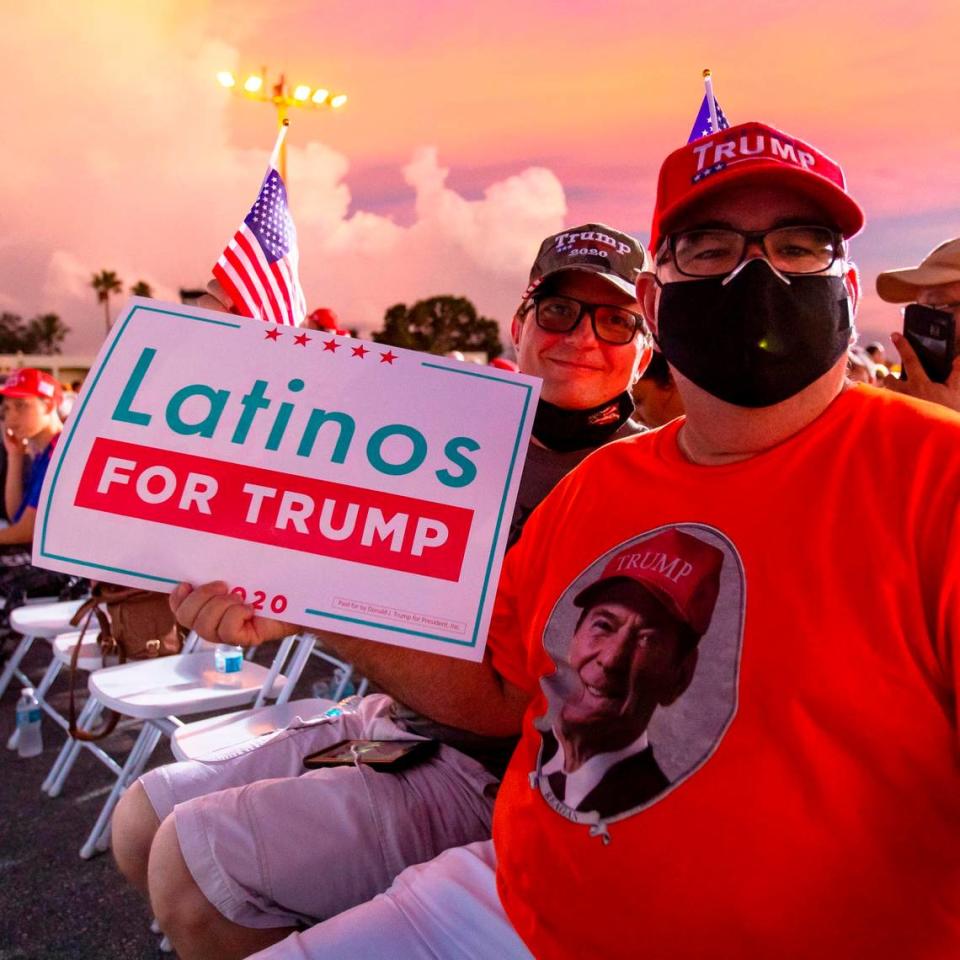Trump focuses on jobs, religious freedom in new policy proposal for Hispanics
President Donald Trump announced his “American Dream Plan: Opportunity for All” on Wednesday — six days before Election Day — with a two-page policy paper aimed at Latinos in the U.S. outlining his plans to prioritize business lending for Hispanic businesses, impose further sanctions on Latin American countries with communist regimes and support religious freedom.
However, the plan falls short in detailing how a second Trump administration would tackle lingering issues in Latino communities around the country and in Florida. Without providing specifics, Trump proposes creating 2 million new jobs in Hispanic American communities, which studies have shown have been disproportionately affected by the COVID-19 pandemic.
In a call with reporters on Thursday, a day after the plan’s release, a senior administration official called it “an accumulation of almost four years of work, specifically geared toward our Hispanic communities in this country and lifting them to new heights and new numbers and new opportunities.” The official cited historically low unemployment rates among U.S. Latinos before the pandemic.
As part of the plan, Trump promises to increase small business lending programs and add at least 500,000 new Hispanic businesses. He also proposes getting rid of some of the fees and licensing barriers when seeking employment.
“The four core principles are fueling a thriving economy, education opportunities for all, preserving freedom and strong faith, families and community,” the official said.
On immigration, the plan says Trump will seek “a permanent solution that is both fair and just” to the Obama-era Deferred Action for Childhood Arrivals (DACA), a program that shields so-called “Dreamers” from deportation and gives immigrants brought to the country illegally as children access to a work permit. After a U.S. Supreme Court ruling this summer that kept the temporary program in place for now, the Trump administration moved swiftly to modify the program to restrict new applicants.
The new proposal does not clarify what actions Trump would take on DACA in a second term. It also does not address the controversial family separation policies that have defined much of his time in office.
The Trump plan also said a second-term administration would “support policies and regulations that place sanctions on Communist regimes” in Venezuela, Cuba and Nicaragua, but it does not detail what further sanctions on remittances, visas or business his administration would prioritize. It also fails to say whether Trump would implement any programs to address the nearly 200 deportations of Venezuelans so far in 2020, which U.S. Sens. Bob Menéndez and Marco Rubio have highlighted in recent letters to the president.

Still, the president’s plan speaks directly to one of his most important Hispanic voter bases in must-win Florida, Cuban Americans, even as Democrats have sought to draw attention to Trump’s hard-line immigration policies in the last days of the campaign. On the trail, Trump and his surrogates have made religion and allegations of socialism a flash-point of his reelection campaign, particularly with South Florida’s Latino communities.
Trump’s plan also talks about providing over a million K-12 scholarships for Hispanic families and streamlining the process to allow more colleges and universities to be designated as Hispanic Serving Institutions, a title for higher education institutions whose student population is at least 25% Hispanic.
On religious freedom, the proposal includes “protection of constitutional rights of all students in public schools,” and protecting “innocent life at all stages of life.”

